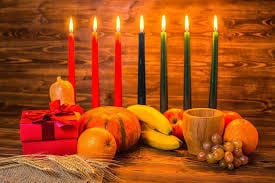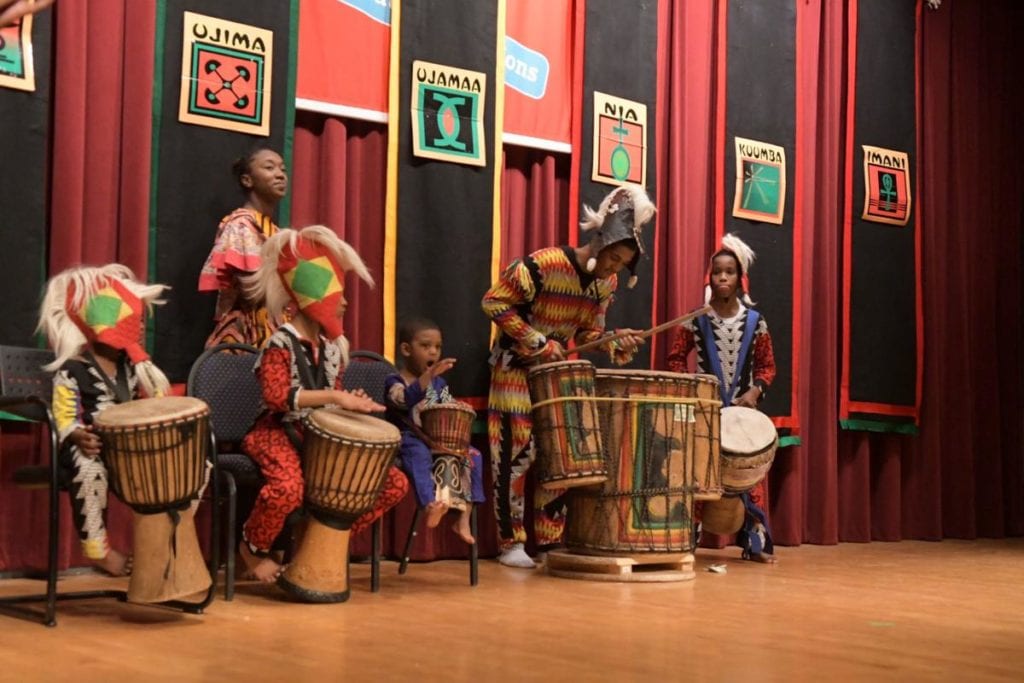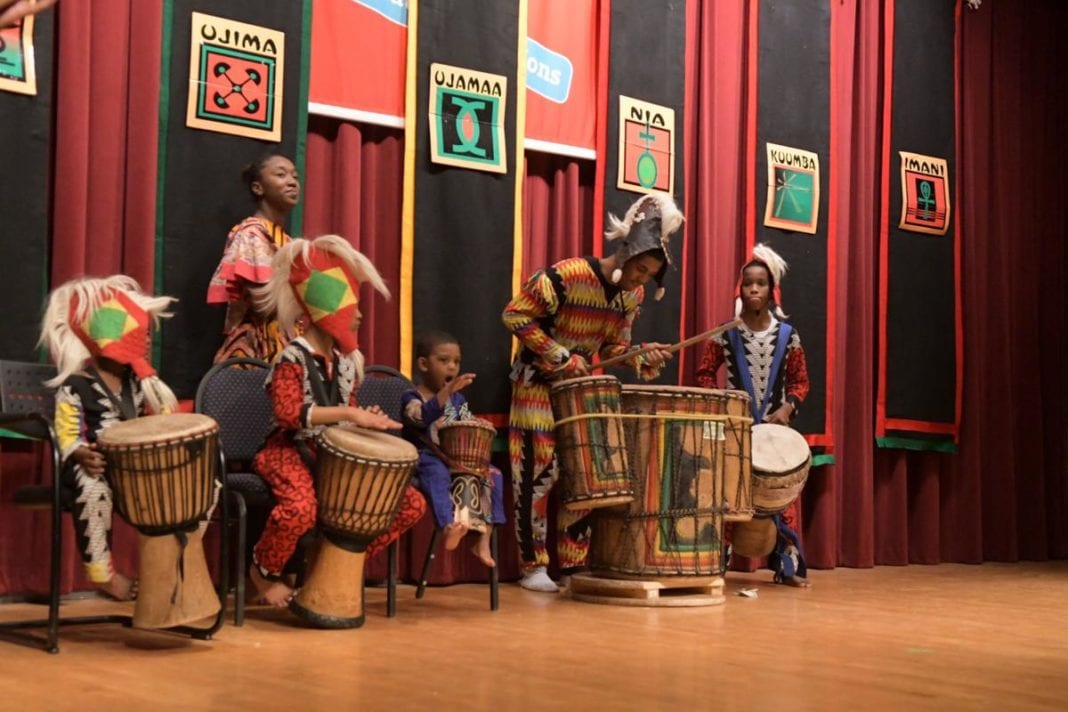Celebrate the first day of Kwanzaa, Umoja, with a fun craft at the Trenton Free Public Library on Thursday, December 26th, at 4:00 p.m. in the children’s room. Materials and Kwanzaa ideas will be provided! Just bring your Kuumba (creativity), and you will be all set.
Kwanzaa — a week-long annual celebration held in the United States (and other nations of the African diaspora in the Americas) in order to honor African heritage, unity and culture — runs from December 26 to January 1, culminating in gift-giving and a feast (although some parents give children small gifts on each of the seven days). Its four key aspects are Unity, Creativity, Faith and Giving gifts.

Kwanzaa embraces selected foods for each of its seven days.
This year’s annual theme is “Embracing the Principles and Practice of Kwanzaa: Creating and Celebrating the Good”, as suggested by Dr. Maulana Karenga, who established the practice of Kwanzaa in 1966. He researched African harvest celebrations and combined aspects of several different celebrations, such as those of the Ashanti and those of the Zulu, to form the foundation of Kwanzaa. For him, the central message of Kwanzaa is unity of African descendants, especially in the Americas. Indeed, the middle candle in the seven-candle array is black, and stands for unity.

African-American Cultural Celebration (photo: Abdul Sulayman)
Above all else, Kwanza can be thought of as a celebration or festival of its Seven Principles or Nguzo Saba:
1. Umoja (Unity): To strive for and maintain unity in the family, community, nation, and race.
2. Kujichagulia (Self-determination): To define ourselves, name ourselves, create for ourselves, and speak for ourselves.
3. Ujima (Collective work and responsibility): To build and maintain our community together and make our brothers’ and sisters’ problems our problems and solve them together.
4. Ujamaa (Cooperative economics): To build and maintain our own stores, shops, and other businesses and to profit from them together.
5. Nia (Purpose): To make our collective vocation the building and developing of our community in order to restore our people to their traditional greatness.
6. Kuumba (Creativity): To do always as much as we can, in the way we can, in order to leave our community more beautiful and beneficial than we inherited it.
7. Imani (Faith): To believe with all our hearts in our people, our parents, our teachers, our leaders, and the righteousness and victory of our struggle.
To find out why three candles are green and three are red, and generally for more information on Kwanzaa, just search online for Kwanzaa or see http://www.officialkwanzaawebsite.org/index.shtml





